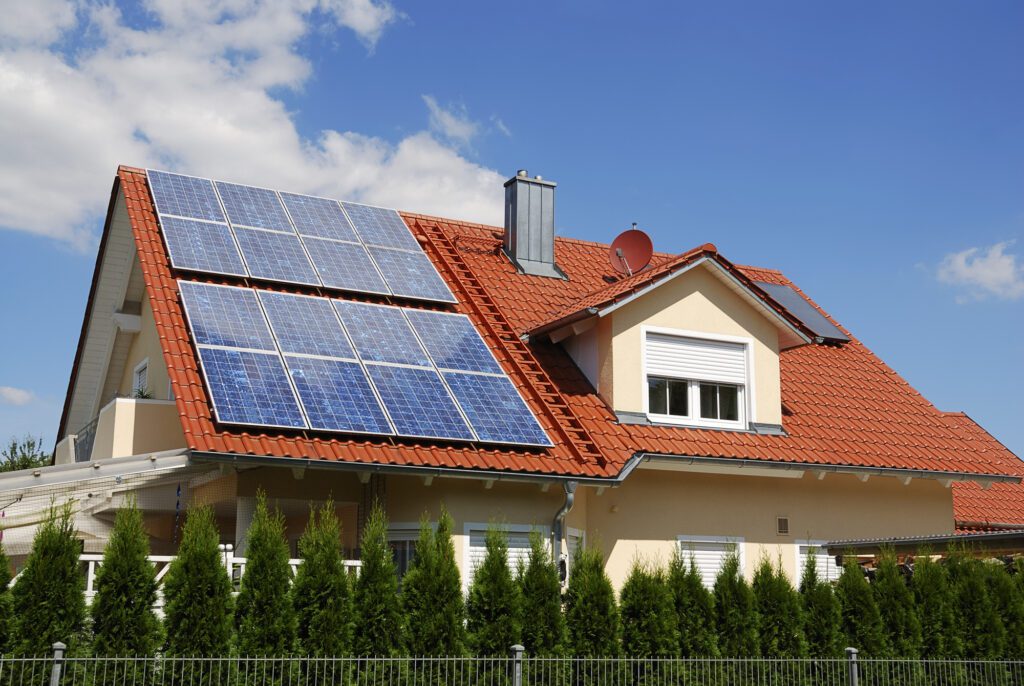*This is a collaborative post

There are many stories of North American homeowners that have saved thousands of dollars on their energy bills by installing solar panels. There are undoubtedly great benefits to be gained from installing your own. But the process takes some careful planning, particularly in terms of calculating solar panel costs.
In this short guide, you can find out how to calculate the cost of solar panels, configure your installation correctly, and ensure your home is well powered all year round.
Are solar panels worth the hype?
We are constantly subjected to proclamations of changing our lives, saving money or other outlandish claims. This article is not here to claim that installing solar panels will change your life, but it can save you well over a thousand dollars a year if you get it right!
The first step is to plan the system within your home. Whether you have a small apartment or a sweeping suburban home, there are solar panel systems to suit all properties. The core aspect is the panels, but you also need to consider parts such as the battery that can add greater value to your system.
It will probably pay to commission the services of a local expert at this stage of the process. They can help ensure everything is installed as it should be, and even give advice on the best equipment to buy.
Storing your solar power
During peak periods of sunshine, your system just runs as normal and uses the power it generates to run your home.
During darker months, you have two choices when it comes to keeping the lights on. As mentioned, you can install a battery or multiple cells to capture excess power in sunny periods. However, solar batteries are not the smallest piece of equipment, and can quickly take up space in a smaller home.
In this case, you can opt for your system to be on-grid. This system is known as net metering and enables you to donate surplus energy into the grid when you have excess. As part of the deal, you are then able to draw from the grid when you have insufficient supplies. By using net metering you can benefit from the reliable supply of energy without needing to tie up valuable space in your home with batteries.
Looking at the total costs of solar panels
Solar panel costs are not just about the price of the panels. You need to consider the total price of the system, and for having it installed safely. You will also need to have your system signed off by local safety authorities which may incur some modest costs.
In the long run, your system will give you a solid return on investment. However, it is necessary to plan for the initial costs to ensure you do not get part of the way through your project and find yourself unable to complete it.
The installation process is also one that needs to be carefully planned into how much solar panels will cost. First, your home will need to be assessed for suitability. This includes the strength of the roof and other installation aspects such as wiring and storage.
Although you may view it as an additional cost, it is advisable to consult the services of a local expert at this stage. Not only can they advise you on these technical aspects of your configuration, but they can also help you plan the financial aspects. Better still, they will probably have first-hand knowledge of the many grants, finance packages and loans available to stimulate solar panel purchases.
Although you can install the system yourself as a DIY project, the likelihood is that you will benefit more from consulting an expert at this stage.
Solar panel costs and your project
As you can see, solar panel system costs do not have to be daunting. You may need to chip in at least a little of your own cash up front, but by making use of financing programs and expert help, you can minimize your investment.
Once you have your system installed, you can start reaping the many benefits. First, you will stop those pesky $100+ dollar per month energy bills from leaving your account. You will also have a reliable source of power, and not be susceptible to power outages or price hikes from the regular grid.
